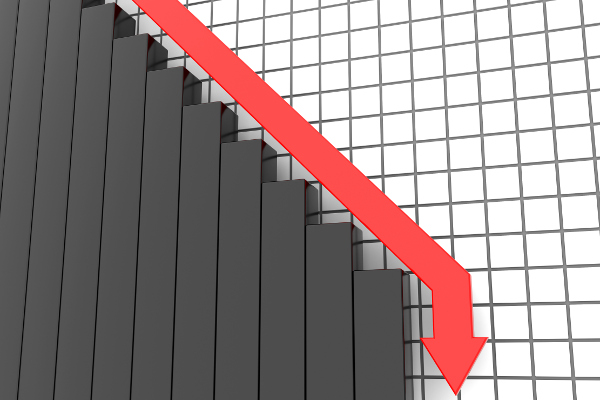Investors are buying the dip: will it work this time?
The crises facing the global economy is, in many ways, unprecedented.
16th March 2020 15:39
by Tom Bailey from interactive investor
The crises facing the global economy is, in many ways, unprecedented.

A growing number of investors are now attempting to “buy the dip” in the face of coronavirus market falls, according to a new poll by interactive investor, Money Observer’s parent company.
The online broker surveyed investors between 28 February and 2 March and again between 11 March and 16 March. The survey in the second period showed an 8% increase in investors saying they were now increasing their stock market exposure. At the same time, the first survey noted 53% of investors said they were doing nothing in response to the virus, which fell to 47% in the second survey.
A lot changed between the two surveys. The first took place when major global markets first started to factor in the potential economic damage that coronavirus and attempts to contain it could bring. As a result, markets saw significant falls. Those, however, were soon followed by a much deeper market correction. During the second period, fears had amplified, resulting in Thursday 12 March becoming one of the worst days for markets in history.
- Coronavirus: will markets fall further, and should I buy, hold or sell?
- Withdrawing income from a Sipp in a bear market: dos and don'ts
Some investors now appear to be thinking that markets have started to see the peak of panic and bottom of their price declines. As result, they are following a “buy the dip” approach. With markets staging strong and fast rebounds after every drawdown since the end of the 2008 financial crisis, this approach has so far worked out for investors following it.
As Rebecca O’Keeffe, head of investment at interactive investor, says: “History suggests that the best time to buy is when the market is fearful – and the market is firmly in panic mode now.”
Not all investors, however, view it as the right time to buy just yet. According to the survey, 19% of investors think the FTSE 100 becomes a buy if it heads down to 4,500, 9% think 4,000, and 8% think even lower. Only time will tell if those investors waiting for even lower prices will be vindicated. However, as O’Keefe notes: “It is nigh on impossible to call the bottom of a market.”
But there is also an argument coming from some quarters that the whole “buy the dip” approach may not be so successful this time. The crises facing the global economy is, in many ways, unprecedented, the argument goes. Potentially, a large share of global production will be bought to a complete halt and demand for many goods and services will collapse.
At the same time, many companies around the world already face high levels of indebtedness and asset prices are still not far below their historic highs. Added to that, after a decade of loose monetary policy, central banks around the world have limited monetary firepower to respond to the crisis.
All that combined may mean prices go a lot lower and stay so for a prolonged period. Again, only time will tell. However, As O’Keeffe notes: “Yes, it could still get much worse, but history suggests that, if you have a reasonable time horizon for your investments, then it is usually better to be buying during these periods of extreme fear and risk aversion than it is to be selling."
This article was originally published in our sister magazine Money Observer, which ceased publication in August 2020.
These articles are provided for information purposes only. Occasionally, an opinion about whether to buy or sell a specific investment may be provided by third parties. The content is not intended to be a personal recommendation to buy or sell any financial instrument or product, or to adopt any investment strategy as it is not provided based on an assessment of your investing knowledge and experience, your financial situation or your investment objectives. The value of your investments, and the income derived from them, may go down as well as up. You may not get back all the money that you invest. The investments referred to in this article may not be suitable for all investors, and if in doubt, an investor should seek advice from a qualified investment adviser.
Full performance can be found on the company or index summary page on the interactive investor website. Simply click on the company's or index name highlighted in the article.